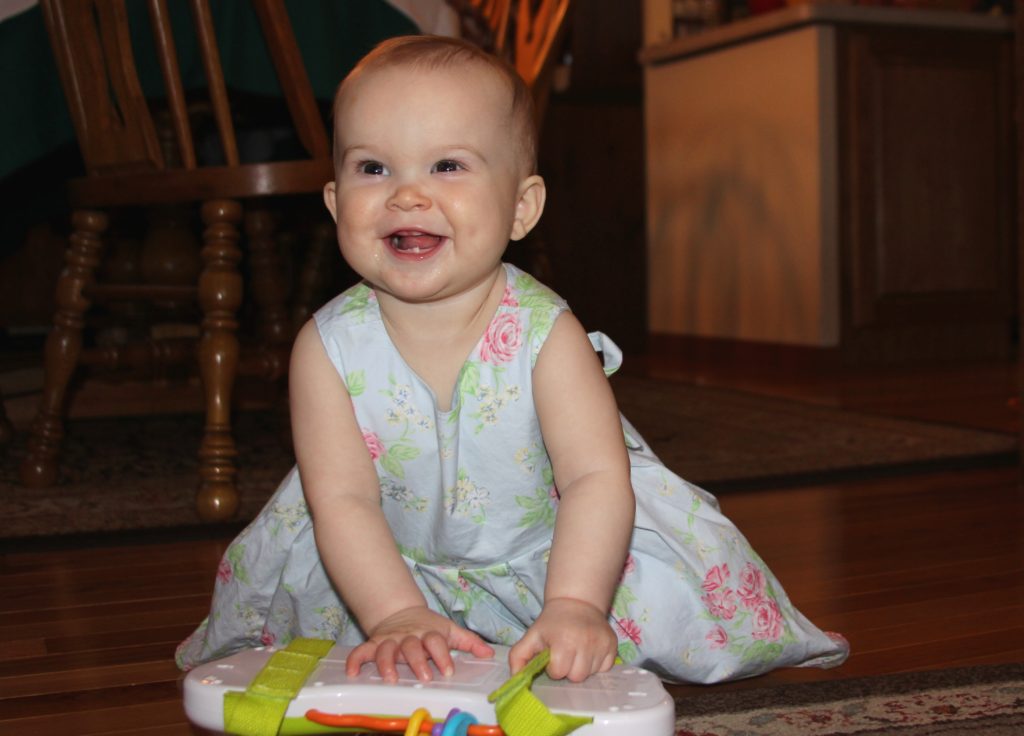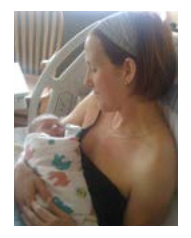Until Gwen
The display flashed “Great workout!”and a sense of dread dug its claws deep in my belly.
I stepped off the treadmill feeling like I was still moving, my heart doing that flutter thing again. I waited for the sensation to pass. It always passed, I told myself. Always.
Hadn’t the doctor said staying active would help improve my mood? If it was supposed to help, I wondered, then why did I feel like I’d just been punched in the gut?
The bathroom stall was dark, but not so dark that I couldn’t see the contrast of red on white.
A drop of blood, bright red and bubbly, stained my underwear. I remember thinking it was the brightest red I had ever seen.
It was a mistake to run. I should have kept it to a brisk walk, or better yet, I should have done something else on my lunch break.
The nurse on the other end of the line sounded distracted. “How much blood is there?”
Was there any good amount of blood for someone in my condition?
“Uh, a couple drops, but I’m not supposed to be bleeding, right?” I said.
She assured me that some spotting was normal, common even, but she said I should come in anyway, “just in case.”
My husband met me in the doctor’s office waiting room. When the nurse called my name he squeezed my hand, he said “Don’t worry, everything is going to be fine.”
Facing one loss, then another
Everything was not fine.
The ultrasound confirmed we had lost the baby. My first thought was, “What had I done?”
Was it the run, the stress, had we waited too long?
Our son, Owen, had been so easy. No sooner were we home from our honeymoon than I was pregnant. But that was nearly four years ago. Was I now too old?
The cause of the miscarriage, my doctor informed us, was most likely a chance chromosomal or genetic abnormality or less likely, a hormonal imbalance or problem with my uterus.
She recommended I undergo testing to rule out the latter two: I did, and both results were normal.
When I became pregnant again a few months later, my doctor prescribed baby aspirin to protect against a rare blood-clotting disorder.
“Will it help?” I asked hopefully.
“Probably not, but it can’t hurt,” she said.
I stopped running on the treadmill and started doing yoga. I tried to be optimistic. Lots of women have miscarriages, I reasoned. I’m not special. For a while, it was all going well –— until my 10-week ultrasound appointment.
Lying on the table, my swollen belly covered in gel, the look on the sonographer’s face said it all.
“I’m having trouble getting a clear picture,” he lied. “I’d like to do an internal exam.”
My heart sank. There was no way this could be good.
I stopped doing yoga. I stopped doing anything that required physical exertion. There was no medical reason for this; it just felt like the right thing to do.
After a couple months had passed, we started trying again. By then, I could recognize the signs that I’d conceived within days of the event. I’d be sitting at my desk at work and all of the sudden I’d have a craving for a cheeseburger (I’m a vegetarian) and I’d know something had changed.
A third child gone
Seven months — they felt like years — after our second miscarriage, I was pregnant again.
And again, we braced ourselves for the worst.
My doctor had me take all the usual precautions, the baby aspirin, the vitamins. She also had me come in for weekly blood tests. When I was eight weeks along, one of those tests revealed my hormone levels were going in the wrong direction, and poof, another pregnancy was gone.
In the days following the surgery to remove my third pregnancy, the guilt set in. Since none of the specialists we saw could explain why my body continued to reject the pregnancies, I decided to make up my own reasons.
I passed my recovery time by quietly speculating on all the things I’d done wrong: I caught a bad cold. I was exposed to paint fumes in the waiting room of my dentist’s newly remodeled office for at least five minutes, possibly more.
I forgot to take my prenatal vitamin. I took Tylenol, twice. I pet my mother-in-law’s cat after she used the litter box. I stopped short in traffic. I drank a cappuccino. I had a pedicure. I toasted the New Year with a sip of champagne. I worried too much. I cried too often.
Sidestepping the support group
We didn’t talk about the miscarriages. We joined a support group, where we listened, most of the time in disbelief, to other people’s stories.
One couple talked about how they had a funeral for a baby they lost at eight weeks. A funeral! If they were eight months along or had a stillbirth or something, then I could understand needing to have some sort of ceremony for closure, but eight weeks?
The midwife who facilitated the group, who had birthed hundreds of babies, but never had any of her own, suggested we name our unborn babies.
I had a problem with the fact that she kept referring to them as “babies.” (I do so in this essay only for the purpose of clarity, but I never thought of my embryos or fetuses as babies.)
Sure, they had the potential to be babies, and that’s what we mourned. But my little guys — or maybe they were girls? — more closely resembled sea monkeys than babies.
Why would we name sea monkeys? We stopped going to the group.
Coping, conflicted
Miscarriage is a strange and private experience. Everyone grieves in their own way.
Some people name their unborn babies; others have funerals. I began writing more. My husband began disappearing into the garage every night to watch football and drink beer with a neighbor. (OK, maybe this wasn’t so unusual for him.)
We both focused more on Owen.
We tried to avoid the subject of babies at dinner parties and family gatherings. This was no easy task. Whenever you have one child, people always wanted to know when you planned on having another. Unsolicited advice was common. People liked to suggest different therapies or alternative medicines they’d read about online.
As if there were something we could do to prevent another miscarriage, as if it were in our hands, as if we hadn’t already explored every possible option. Although family and friends meant well, they often said things like, “You can always try again” and “At least you have Owen.”
A coworker friend of mine, who has four kids, suggested we get a puppy.
One evening at dinner, my husband announced he wanted to stop trying. “Maybe God is trying to tell us something,” he said.
“Like what?” I asked.
“Like maybe we should quit while we’re ahead,” he said.
Dreaming of life
I pretended not to hear him. That same night, I dreamed I had a baby, a girl. She had almond-shaped eyes and a dimple on her left cheek. She looked healthy.
In a hospital bed I cradled her in my arms and sang to her softly until a nurse came to take her away.
After enough time had passed, we started the pregnancy conversation again. We were still having the conversation when I found out I was pregnant for the fourth time in less than four years.
My husband, despite his fears and reservations, was overjoyed. I wasn’t so sure how I felt. On the outside, I maintained a calm, even hopeful attitude.
But inside, I was holding my breath. I held it through the doctor visits and the blood tests. I held it despite all the assurances that my pregnancy was progressing normally. I even held it through the ultrasounds that showed a perfectly formed baby with 10 little fingers and 10 little toes.
Joy! Why now?
It wasn’t until I heard my daughter cry for the first time that I exhaled.
Gwendolyn Kelly arrived via a Cesarean section on June 25, 2014. She is a happy baby with bright eyes and a coy smile that’s all dimples and sweetness. One look at her face and my heart breaks into a thousand pieces.
Although Gwen has been a part of our lives for nine months now, I am still amazed by her existence. My parents care for her while we are at work. They threaten to turn off their phone if I call more than twice a day to ask how things are going.
I continue to sneak into the nursery each night to check on her, even though it’s been months since she’s demanded a middle-of-the-night feeding. On the days I’m feeling especially sleep deprived, I wonder about the miscarriages and what made this last pregnancy so different from the rest.
I wonder about Gwen’s genes and chromosomes and other things I don’t understand. I suspect much of what I’m feeling is normal postpartum anxiety. My husband reminds me that Gwen is doing just fine. She’s strong and healthy and active and I worry too much.
I suppose he’s right.
Tina Mortimer is an essayist and a contributing writer for many local publications. She lives in White Bear Lake with her husband and two small children. Follow her work at tinamortimer.contently.com.


















